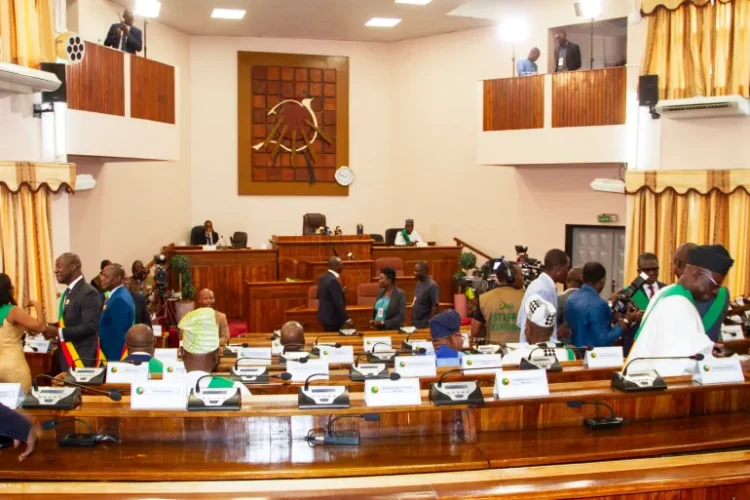The National Assembly of Bénin (National Assembly Benin) has approved a revision of the country’s Constitution, extending the presidential term from five to seven years and creating a bicameral parliament.
In a post shared on Facebook on Saturday by the Assemblée Nationale du Bénin, lawmakers announced that the bill was passed during a plenary session held on Friday at the Palace of the Governors in Porto-Novo.
According to the Assembly, 90 deputies voted in favour and 19 against, approving the amendment to the Constitution of 11 December 1990, previously revised in 2019.
“The Deputies of the 9th Legislature… adopted by 90 votes for and 19 against, the law modifying the Constitution of the Republic of Bénin,” the statement read.
The legislative body added that, in line with Article 154, the proposal first had to secure the required three-quarters majority during a preliminary vote. Deputies met this threshold with 87 votes for and 22 against, before proceeding to the final secret ballot.
The post, originally published in French, has been translated by PUNCH Online using Google Translate.
According to the Assembly’s breakdown, 15 new articles were created and 18 amended.
One of the most significant changes is contained in the newly modified Article 42, which now states: “The President of the Republic is elected by direct universal suffrage for a term of seven years, renewable only once. No one may, in his or her lifetime, serve more than two terms as President of the Republic.”
The reform also introduces a bicameral legislature, as stipulated in the updated Article 79, giving legislative powers and government oversight to both the National Assembly and a newly established Senate.
“Beyond this major change, Parliament—under the amended Article 79—exercises legislative power and oversees government action. It is now composed of two chambers: the National Assembly and the Senate.”
Under Article 80, deputies’ terms are now set at seven years, renewable, with an additional clause stating that any deputy who resigns from the party that sponsored them during legislative elections will automatically lose their mandate.
“The term of office for deputies is 7 years, renewable. Any deputy who resigns and thereby ceases to be a member of the party that sponsored them for the legislative election loses their mandate.”
The reformed Article 113.1 defines the Senate as an institution responsible for regulating political life and safeguarding “national unity, development, territorial defence, public security, democracy, and peace.”
The law also extends the tenure of mayors and municipal councillors to seven years, renewable.














